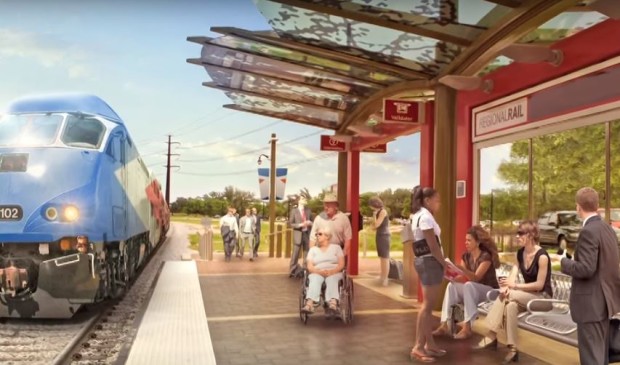Cap Metro board greenlights central corridor study
Tuesday, January 26, 2016 by
Caleb Pritchard Project Connect is returning to Central Austin.
The Capital Metropolitan Transportation Authority board of directors unanimously approved on Monday a contract with the engineering firm AECOM to guide a new study of transportation in the urban core dubbed the Central Corridor Comprehensive Transit Analysis, or CCCTA. The eight-member board voted 7-0 on the measure, after Vice Chair Beverly Silas recused herself.
The $3 million, 30-month study is Project Connect’s first foray back into the central city after voters overwhelmingly rejected the $1 billion roads-and-rail bond known as Proposition 1 in November 2014.
Since then, Project Connect – a partnership between Cap Metro, the city of Austin and Lone Star Rail – has largely kept a low profile. Its once-prolific Twitter account has been silent for more than a year.
Behind the scenes, however, Cap Metro has been laying the groundwork for the CCCTA. In August, the agency began shopping for consultants to assist in the study. Staff ultimately recommended that AECOM win the bid, and the board’s Operations, Planning and Safety Committee endorsed that pick earlier this month.
Although set on Monday’s agenda for approval by consent, Board Chair Wade Cooper pulled the item for discussion and asked Javier Arguello, director of long-range planning, to provide more details about the study and the arrangement with AECOM.
Arguello explained that the primary goal of the CCCTA is to “develop pragmatic transit solutions for a multimodal transit system that improves travel into and within downtown Austin.”
Last week, Cap Metro CEO Linda Watson told the Austin Monitor that the CCCTA won’t simply be a redundant version of the central core study that was implemented ahead of Prop 1. “There’s a lot of data available from that report that can be used,” Watson said. “But there’s also new data that needs to be generated. That first study identified several major travel shed areas, and we will … continue to fine-tune and look a little more in-depth at those and develop more precise numbers and data.”
On Monday, Arguello explained that the CCCTA will examine the two MetroRapid bus lines that deployed in 2014 as well as MetroRail. It will also focus on examining funding options for new services. Finally, Arguello explained that the CCCTA will involve a “hefty” public involvement plan. This last point promises to draw close scrutiny from critics of the buildup to Prop 1 who charged that Project Connect ignored any input from public meetings in favor of predetermined outcomes.
Indeed, City Council Member and Cap Metro Board Member Ann Kitchen insisted that the board have an opportunity to be updated on the development of the new public involvement plan. She and Cooper agreed that staff should provide monthly briefs to the board on the progress of the plan.
Before the board even took up the issue, one critic in the audience slammed the notion of yet another study. Dave Dobbs of the Texas Association for Public Transportation said there have been 10 publicly funded studies along a similar vein conducted in Central Austin in just over 30 years.
“Since 1984, we’ve spent at least 20 million taxpayer dollars for high-capacity transit corridor studies, and this figure does not figure for inflation,” Dobbs explained. “As an Austin resident of 46 years, 37 of which I have devoted intensely to public transit, I can assure you, contrary to what you may have heard, that Austinites are ready for an intelligent urban rail proposal on the ballot as soon as possible.”
Dobbs was referring to a recent recommendation by the city’s Urban Transportation Commission that Council consider putting another rail referendum before voters this November. He also seemed to be responding to Watson’s recent statement to the Monitor that the community is not yet ready for light rail transit.
While Dobbs’ remarks went unchallenged by the board, Cooper did sum up his own personal feelings on the CCCTA just before the vote. He asserted that it is one of the “most important” projects within the community before concluding, “Having been around transit for a pretty good while – more as a bystander, I suppose – to me there’s no greater need in the city of Austin than for us to figure out how transit intersects with downtown.”
This story has been corrected to reflect the correct board vote, which included a recusal.
Video still courtesy of Project Connect
You're a community leader
And we’re honored you look to us for serious, in-depth news. You know a strong community needs local and dedicated watchdog reporting. We’re here for you and that won’t change. Now will you take the powerful next step and support our nonprofit news organization?











